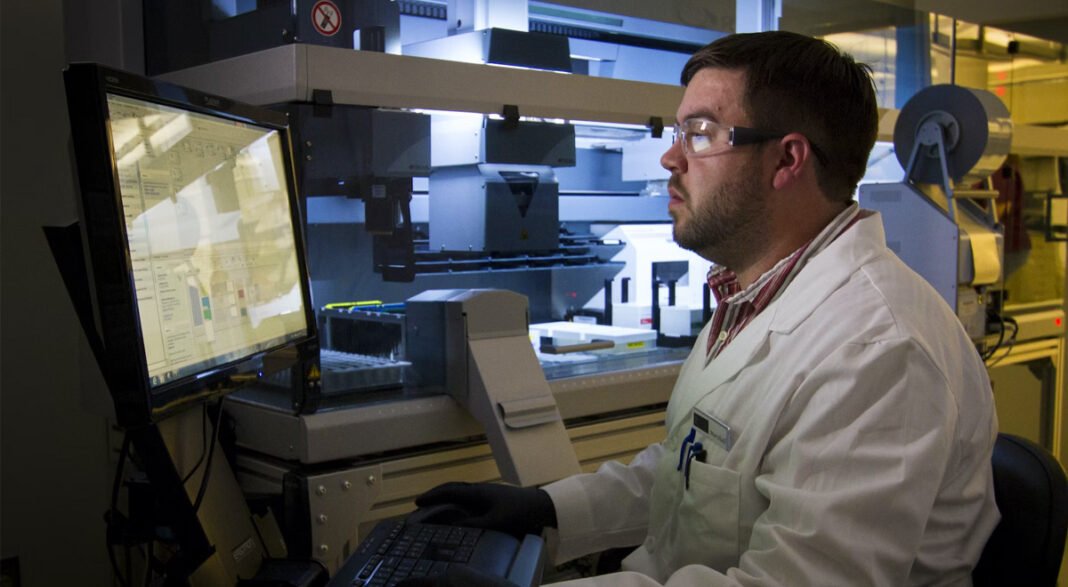The integration of artificial intelligence (AI) in healthcare is rapidly changing the way medicine is practiced, from diagnostics and treatment to patient care and medical education. As the healthcare industry evolves, AI is emerging as a powerful tool that can enhance precision, improve efficiency, and personalize patient care. While AI is still in its early stages of adoption in many areas, its impact is already being felt across the medical field.
AI is not about replacing doctors, but about augmenting their capabilities. By automating routine tasks, providing data-driven insights, and helping with complex decision-making, AI is empowering healthcare providers to focus on what truly matters: the patient. Here are 10 innovative examples of how AI is revolutionizing medical care:
1. Revolutionizing Diagnostics
One of the most exciting applications of AI in healthcare is its ability to assist in medical diagnoses. AI-powered systems can analyze medical images—such as X-rays, MRIs, and CT scans—with remarkable accuracy, often surpassing human capabilities. These tools help detect conditions like cancer, pneumonia, and retinal diseases with speed and precision. For instance, AI is already used in cardiology to diagnose heart attacks by analyzing electrocardiogram (ECG) data, and in dermatology, it helps identify skin cancer by analyzing visual patterns in skin lesions.
Recent studies show that AI can match or even exceed the diagnostic accuracy of human experts, making it a game-changer in early disease detection. Its ability to process vast amounts of data quickly can also reduce waiting times for test results, ultimately leading to faster treatment.
2. Accelerating Drug Discovery
Developing new drugs is a long, complex, and expensive process. However, AI is helping to expedite this journey. By analyzing large datasets of biological and chemical information, AI algorithms can predict which drug compounds might be most effective in treating specific diseases. During the COVID-19 pandemic, AI was instrumental in accelerating the discovery of potential treatments and vaccines by analyzing genetic sequences of the virus and identifying candidate molecules.
AI is also transforming the clinical trial process by identifying suitable participants more efficiently and predicting how they will respond to different treatments, which helps reduce costs and improve the likelihood of success.
3. AI-Powered Virtual Health Assistants
Another AI-driven innovation is the rise of virtual health assistants, which are transforming patient engagement and care. These AI tools, such as chatbots and voice assistants, can answer patient questions, provide health advice, schedule appointments, and remind patients to take their medications. These assistants can handle routine tasks, freeing up medical staff to focus on more complex issues.
For example, AI-powered assistants can provide basic healthcare advice based on symptoms, helping patients decide whether they need to see a doctor. This reduces the burden on healthcare professionals and improves patient access to care.
4. Personalized Medicine
Personalized medicine is another area where AI is making a significant impact. By analyzing genetic, clinical, and lifestyle data, AI can help create individualized treatment plans for patients. This approach allows for more precise treatments tailored to a person’s unique genetic makeup, improving outcomes for conditions like cancer, heart disease, and rare genetic disorders.
AI algorithms can also predict how a patient will respond to a specific medication or therapy, helping physicians make more informed decisions and avoid adverse reactions. This level of personalization helps optimize treatment, reduce side effects, and improve patient quality of life.
5. Robot-Assisted Surgery
AI is enhancing the precision of surgical procedures through robotic-assisted surgery. Surgical robots, powered by AI, can assist surgeons by providing real-time data, improving the accuracy of procedures, and minimizing human error. These robots can analyze a patient’s medical history, create a customized surgical plan, and even guide the surgeon’s hand during the procedure.
The result is minimally invasive surgeries that lead to shorter recovery times, reduced risk of complications, and less pain for the patient. With AI’s ability to process large datasets, these robots can also learn from past surgeries, continuously improving their performance over time.
6. AI in Medical Education and Training
Medical education is also benefiting from AI’s capabilities. AI-driven tools are being used to teach medical students and professionals in more dynamic, personalized ways. AI-powered platforms can adapt to students’ learning styles, pace, and knowledge gaps, providing them with tailored educational content.
Moreover, AI is being used in simulations and virtual reality environments to give students hands-on experience in a risk-free setting. These technologies allow students to practice procedures, diagnose conditions, and engage in clinical scenarios, all while receiving real-time feedback from the AI systems.
7. Optimizing Clinical Trials
Clinical trials are a critical part of medical research, but they can be time-consuming and costly. AI is streamlining this process by analyzing patient data to identify suitable candidates for trials, helping to speed up recruitment. AI models can also predict how patients will respond to treatments, making it easier to design more effective trials and increase the chances of success.
Furthermore, AI is improving safety monitoring in clinical trials by detecting early signs of adverse reactions and enabling proactive intervention. This not only protects participants but also ensures that trials are conducted with the highest level of care and compliance.
8. Natural Language Processing for Health Records
AI-driven Natural Language Processing (NLP) is transforming how healthcare professionals manage medical records. By analyzing unstructured data in electronic health records (EHRs), AI can extract valuable information that would otherwise be difficult to access. This enables healthcare providers to make more informed decisions and reduces administrative burdens.
NLP also helps with billing and coding, ensuring that medical records are properly documented and reimbursed. In addition, AI can assist in clinical decision-making by flagging potential issues, suggesting treatment options, and offering data-driven insights that improve patient care.
9. AI in Genomics
AI is revolutionizing the field of genomics by enhancing our ability to sequence and interpret genetic data. Machine learning algorithms can quickly analyze complex DNA sequences, identifying mutations and variations that may indicate a predisposition to certain diseases. This capability is crucial for understanding genetic disorders and tailoring treatment plans to a patient’s genetic profile.
By predicting how individuals will respond to specific treatments based on their genetic makeup, AI is helping to create personalized medicine that is both more effective and less risky.
10. Mental Health Support
AI is also making strides in mental health care. AI-powered platforms can provide support for individuals experiencing mental health challenges, offering coping strategies and even engaging in therapeutic conversations. These platforms use Natural Language Processing (NLP) to detect emotional cues in speech or text, enabling them to offer early interventions or suggest professional help when needed.
AI-driven mental health tools can help increase access to care, especially for individuals who may be hesitant to seek help or live in underserved areas. These platforms are also helping to reduce the stigma associated with mental health by providing discreet and accessible resources.
Conclusion: A New Era in Healthcare
The potential of AI in healthcare is vast and still expanding. From improving diagnostics and speeding up drug discovery to enhancing personalized treatments and supporting mental health, AI is transforming every aspect of medical care. As this technology continues to evolve, it promises to make healthcare more efficient, accessible, and patient-centered, ultimately improving outcomes for people around the world.
While challenges remain, such as data privacy concerns and the need for regulation, the future of AI in medicine is undoubtedly bright. As we look ahead, it’s clear that AI will continue to play a crucial role in reshaping the healthcare landscape, empowering both providers and patients to achieve better, more personalized care.



